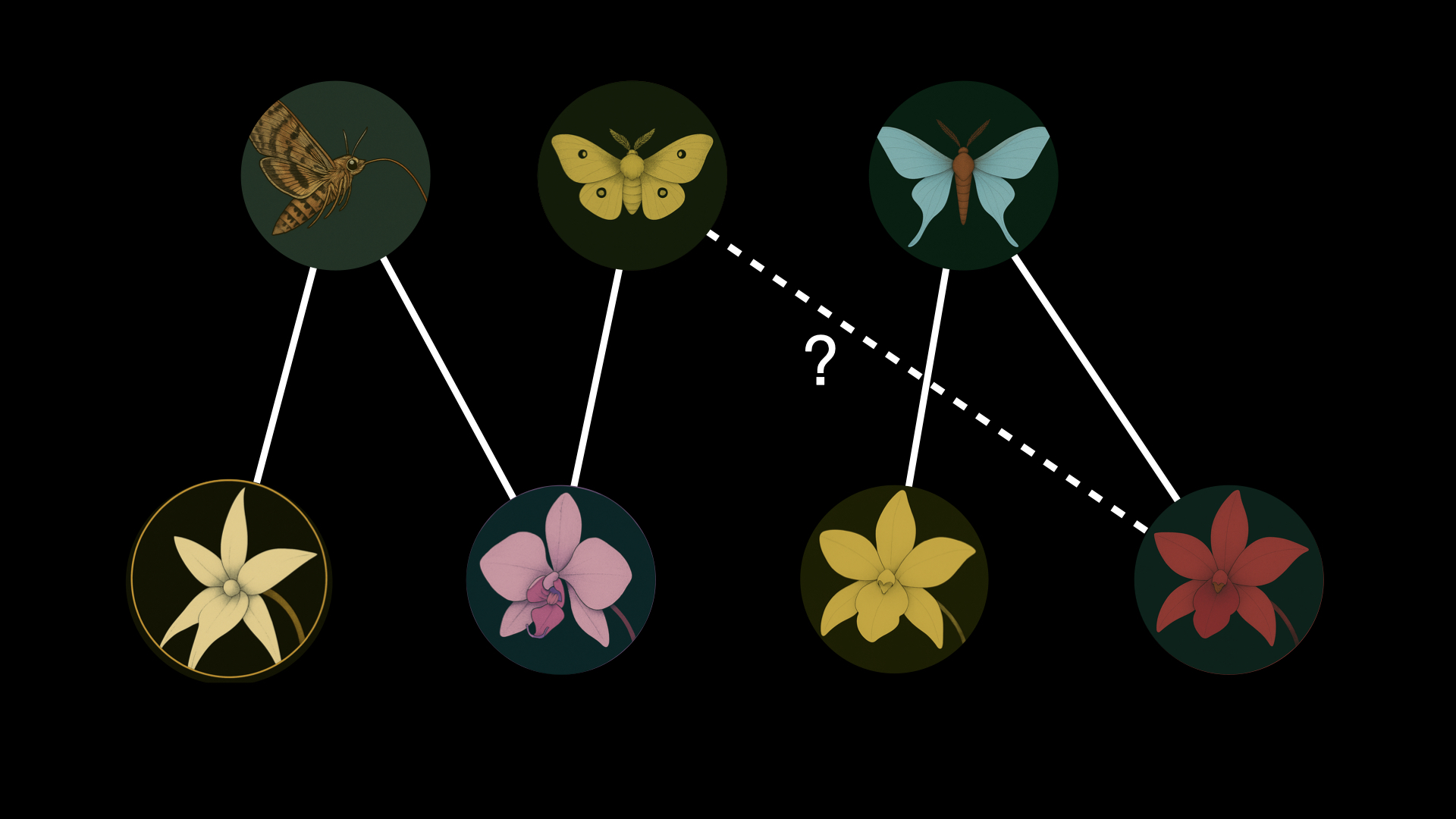Postdoctoral / PhD Position in Link Prediction & Ecological Network Forecasting
The Ecological Complexity Lab at Ben-Gurion University is seeking a Postdoc or PhD candidate to develop and apply methods for link prediction in ecological networks. You will lead research integrating network science, statistical modeling, and ecological data to infer missing interactions in diverse ecological communities and quantify drivers of network structure.
This research sits at the intersection of ecology, computational modeling, and data science, and will contribute to general principles for predicting ecological interactions under environmental change.
We welcome outstanding candidates with strong quantitative skills and interest in ecological networks.
Read this page to apply: https://ecomplab.com/team/join/
Starting date
Open until filled.
Key Responsibilities:
- Develop and benchmark computational/statistical methods (e.g. machine learning, Bayesian models, network inference) for link prediction in ecological networks.
- Integrate diverse data (species traits, phylogeny, environmental covariates, existing interaction records) to train and validate predictive models.
- Publish results in peer-reviewed journals and present at scientific meetings.
- Collaborate with lab members and external partners.
Required Expertise & Qualifications:
- For PhD track: MSc (or equivalent) in computational biology/ecology, data science, mathematics, or a related field.
- For Postdoc track: PhD (or equivalent) in computational biology/ecology, data science, mathematics, or a related field.
- Strong experience in quantitative modeling, statistical inference, and machine learning.
- Proficiency in programming (Python, R, or equivalent).
- Evidence of scientific writing and ability to publish (especially for postdoc applications).
- Ability to work in an interdisciplinary research team.
Preferred / advantageous skills:
- Prior experience with ecological networks, link prediction, or network science.
- Familiarity with trait data, phylogenetic methods, or environmental covariates.
- Experience with Bayesian modeling, probabilistic inference, or network algorithms.
- Knowledge of spatial/ecological data processing tools.
